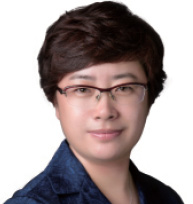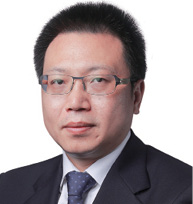The 13th Five-Year Plan for National Intellectual Property Protection and Utilization, promulgated in December 2016, has made it clear that key tasks during the 13th five-year plan period include enforcing IP protection, further increasing compensation for IP infringement, and preventing false litigation.

ZHANG BIN
立方律师事务所高级合伙人
Senior Partner
Lifang & Partners
In July 2017, the general secretary of the Communist Party of China, Xi Jinping, pointed out at a meeting of the Central Leading Group for Financial and Economic Affairs that it is necessary to strengthen punishment against IP infringements and make infringers pay for their transgressions.
In August 2017, when delivering the report of the Supreme People’s Court (SPC) on the work of the IP courts, the president of the SPC, Zhou Qiang, mentioned that it is necessary to focus on resolving issues such as the “low cost for committing infringement and high cost for safeguarding rights”, strengthening IP-related punishments, increasing compensation awards pursuant to the law, and making infringers pay for their transgressions.
Presenting the government work report at the 13th National People’s Congress in March 2018, Premier Li Keqiang stressed that “all types of infringements must be dealt with in a stern manner pursuant to the law”, and that “IP protection must be reinforced and a system of punitive infringement damages must be adopted”.
In recent years, as China continues to sharpen its scientific and technological capabilities, its IP protection practices have drawn great interest. Chinese IP legislation now forms a complete ecosystem and the judicial protection of IP is becoming increasingly mature after 35 years of development. With the establishment of specialized IP courts, the adjudication of IP disputes is becoming more specialized and fine-tuned. Court-awarded infringement damages are gradually increasing and attracting international attention.

XIE GUANBIN
立方律师事务所高级合伙人
Senior Partner
Lifang & Partners
Compensation awards have increased significantly. At present, awards for IP infringement damages in China are continuously on the rise. Take the Beijing Intellectual Property Court as an example. According to non-exhaustive data, the average amount of compensation awarded for patent infringement, trademark infringement and copyright infringement by the Beijing Intellectual Property Court in 2016 was RMB1.41 million (US$224,000), RMB1.65 million and RMB458,000, respectively. This is a substantial increase compared with 2015.
The increasing levels of infringement damages reflect the strengthening protection of IP. It is also the result of judicial efforts to explore a variety of standards for determining damages, perfect evidential rules that are suitable for IP cases, and set up special systems to help protect IP.
Statutory compensation is widely applied. In China, awards of damages for IP infringement may be determined using different methods, including the actual loss suffered by the right holder, the profits gained by the infringer, an amount that is a reasonable multiple of the licensing fee, compensation by agreement, statutory compensation, and discretionary compensation that exceeds the upper limit of statutory compensation.
Based on the authors’ own experiences of IP practice, before 2015, statutory compensation was the single most-adopted method across all types of IP infringement cases. Pursuant to prevailing laws and regulations, statutory compensation for copyright infringement, patent infringement and trademark infringement is now up to RMB500,000, RMB1 million and RMB3 million, respectively.
It is clear that awards of statutory compensation are often low and may not match the market value of the IP infringed. However, because it is rather difficult to provide sufficient evidence to prove actual losses and illegal gains, most infringement awards end up being based on statutory compensation levels.
Discretionary compensation. To address the excessive application of statutory compensation, in 2009, the SPC made a pioneering attempt to prescribe a method for calculating discretionary compensation in excess of statutory compensation levels. This was followed by similar guidelines issued by courts in Beijing, Shanghai and Zhejiang. Since those guidelines were issued, the courts have gradually formed several common practices to determine infringement damages in excess of the upper limits of statutory compensation.
After a preliminary study of cases in recent years, we have found that, in patent infringement cases, courts can generally go beyond the maximum awards for statutory compensation by using the following methods in their judgments: evidence preservation; evidence disclosure; the preponderance of evidence; estoppel; hypothetical licensing fee doubling; third-party data verification; judicial appraisal; and reasonable estimation and financial auditing, all of which help to ease the difficulties faced by plaintiffs in producing evidence, and provide a foundation for the calculation of reasonable market valuations.
Additionally, cases where the upper limits of statutory compensation are exceeded generally involve patents of higher market value, serious infringement or large-scale infringement.
New directions in determining infringement damages. Chinese courts have gradually formed new directions in determining infringement damages, such as the No. 1 Document Promulgated by the Supreme People’s Court in 2018, which the authors consider to be a very positive development.
In summary, these new directions include: (1) using the market value of IP as the benchmark for awarding infringement damages; (2) focusing on loss-based damages combined with punitive damages to raise compensation standards and so resolve the practical issue of “low costs for infringement and high costs for protection”; and (3) minimizing the application of statutory damages by applying special evidential rules in IP disputes to make judicial determinations more specialized and fine-tuned.
Zhang Bin is a senior partner at Lifang & Partners. She can be contacted on +86 10 6409 6099 or by email at binzhang@lifanglaw.com
Xie Guanbin is a senior partner at Lifang & Partners. He can be contacted on +86 10 6409 6099 or by email at guanbinxie@lifanglaw.com





















